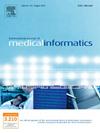Validating the information technology (IT) implementation framework to Implement mHealth technology for consumers: A case study of the Sense2Quit app for smoking cessation
IF 3.7
2区 医学
Q2 COMPUTER SCIENCE, INFORMATION SYSTEMS
International Journal of Medical Informatics
Pub Date : 2025-05-20
DOI:10.1016/j.ijmedinf.2025.105977
引用次数: 0
Abstract
Objective
The goal of this paper was to understand the applicability of the Information Technology (IT) Implementation Framework, a multi-level approach to identify factors that impede or promote IT usage, for incorporating a mHealth technology for consumers in the community setting.
Methods
A case study of the implementation of the Sense2Quit App for smoking cessation among people living with HIV was examined to parse out the factors within the framework that are applicable to mHealth technology and the factors that may need modification for use of this framework within this context.
Results
Findings suggest that phases two through five of the framework were applicable to our study and phase one was not.
Conclusion
Findings support the use of the theory for implementation of mHealth technology for promoting consumer health at the community level. This use case may be useful for stakeholders evaluating implementation of mHealth for patients with chronic conditions as it highlights the need to identify preferences of app specifications, personal habits, and various factors such as confidentiality and digital literacy which may challenge sustained usage.
验证信息技术(IT)实施框架,为消费者实施移动健康技术:戒烟应用Sense2Quit的案例研究
本文的目的是了解信息技术(IT)实施框架的适用性,这是一种多层次的方法,用于识别阻碍或促进IT使用的因素,以便在社区环境中为消费者整合移动健康技术。方法对Sense2Quit应用程序在艾滋病毒感染者中戒烟的实施情况进行了案例研究,以分析适用于移动健康技术的框架内的因素以及在此背景下使用该框架可能需要修改的因素。研究结果表明,框架的第二到第五阶段适用于我们的研究,而第一阶段则不适用。结论:研究结果支持使用理论来实施移动健康技术,以促进社区层面的消费者健康。本用例可能有助于利益相关者评估慢性病患者的移动医疗实施情况,因为它强调了确定应用程序规格偏好、个人习惯和各种因素(如保密性和数字素养)的必要性,这些因素可能会挑战持续使用。
本文章由计算机程序翻译,如有差异,请以英文原文为准。
求助全文
约1分钟内获得全文
求助全文
来源期刊

International Journal of Medical Informatics
医学-计算机:信息系统
CiteScore
8.90
自引率
4.10%
发文量
217
审稿时长
42 days
期刊介绍:
International Journal of Medical Informatics provides an international medium for dissemination of original results and interpretative reviews concerning the field of medical informatics. The Journal emphasizes the evaluation of systems in healthcare settings.
The scope of journal covers:
Information systems, including national or international registration systems, hospital information systems, departmental and/or physician''s office systems, document handling systems, electronic medical record systems, standardization, systems integration etc.;
Computer-aided medical decision support systems using heuristic, algorithmic and/or statistical methods as exemplified in decision theory, protocol development, artificial intelligence, etc.
Educational computer based programs pertaining to medical informatics or medicine in general;
Organizational, economic, social, clinical impact, ethical and cost-benefit aspects of IT applications in health care.
 求助内容:
求助内容: 应助结果提醒方式:
应助结果提醒方式:


